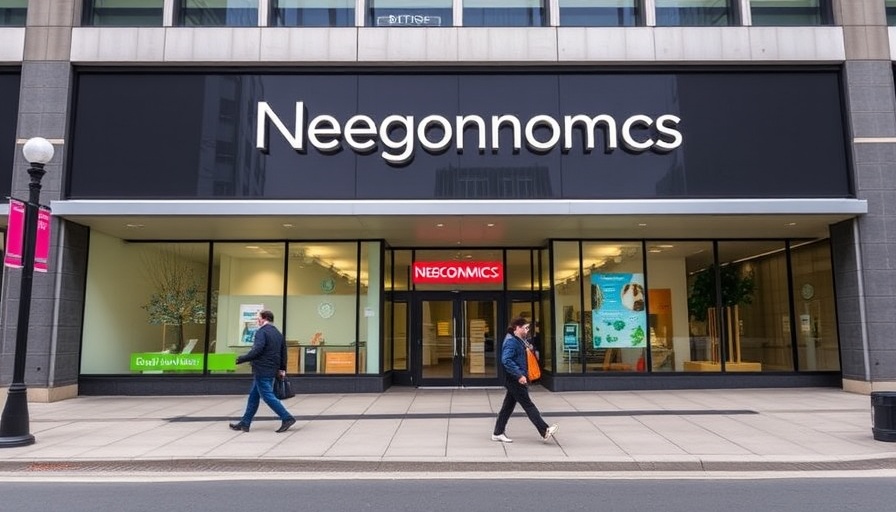
Neogenomics Faces Downgrade Amid Execution Concerns
Neogenomics (NASDAQ: NEO), a prominent player in the health diagnostics sector, has recently experienced a significant downgrade from BTIG. Previously rated as ‘Buy’, the company now holds a ‘Neutral’ rating, primarily due to worries regarding its management credibility and product alignment with the evolving needs of pharmaceutical firms. The downgrade comes at a time when Neogenomics' stock price has plummeted over 20% in just a week, now sitting at approximately $5.25.
Examining the Concerns
Analysts at BTIG have raised flags regarding Neogenomics’ reluctance to prioritize its long-term growth strategies. Although the company projected a year-over-year revenue increase of 12-13%, recent comments from the newly appointed CEO during the second-quarter earnings call suggest a potential shift away from these targets. This raises valid concerns about management's effectiveness and its capability to implement this ambitious growth plan.
Financial Metrics Under Scrutiny
While Neogenomics did achieve a respectable 10.1% revenue growth over the past year, there are troubling signs ahead. Notably, the firm carries an extraordinarily high enterprise value (EV)/EBITDA ratio of 1,406x, suggesting that market expectations might be overly optimistic or that the company’s viability is being called into question. This figure is alarming, as it signifies a potential misalignment with traditional investment valuation metrics.
Comparative Performance in the Sector
BTIG's downgrade also reflects a significant contrast between Neogenomics and its competitors, many of whom are witnessing robust growth. As pharmaceutical companies continuously adapt to new technologies and diagnostics methods, any misstep in aligning product offerings with these changes could lead to further market share erosion for Neogenomics.
Future Trends and Predictions in the Biotech Sector
The ongoing changes in the healthcare landscape make this a critical juncture for diagnostic firms. Investors should be keenly aware of how Neogenomics adjusts its portfolio and operational strategy in response to competitive challenges and evolving customer demands. Future performance will largely depend on the company's ability to streamline its offerings effectively while enhancing engagement with key stakeholders within the pharmaceutical industry.
What This Means for Investors
Investment strategies in the current market require careful analysis of both growth and value potential. Neogenomics, with its current troubles, serves as a reminder of the importance of thorough research. For those keen on navigating the stock market, particularly in sectors like healthcare, understanding how to identify misalignments in company strategy and industry trends is key. This applies to both seasoned investors looking for growth stocks and beginners seeking stable options in their portfolios.
Keeping an Eye on Market Trends
As we traverse these market fluctuations, staying informed about stock market trends is vital. Investors would do well to enhance their knowledge through various investment research tools and techniques available today. Comprehensive market analysis could provide insights into the health of investment portfolios and shed light on effective risk management practices.
Opinion: Understanding Execution Risks
Neogenomics' current challenges emphasize the necessity of maintaining robust management strategies that can effectively tackle execution risks. As companies evolve, it's essential for investors to remain vigilant about the perceived credibility of management teams and their strategic vision, especially in turbulent times.
Conclusion
The downgrade of Neogenomics by BTIG provides crucial insights for the investment community, particularly in healthcare. Understanding the dynamics at play can help investors make smarter decisions in a sector marked by rapid change and fierce competition. Those actively managing their portfolios must keep a close watch on Neogenomics as an example of how execution and strategic alignment can dramatically influence valuation and investor sentiment.
 Add Row
Add Row  Add
Add 



Write A Comment